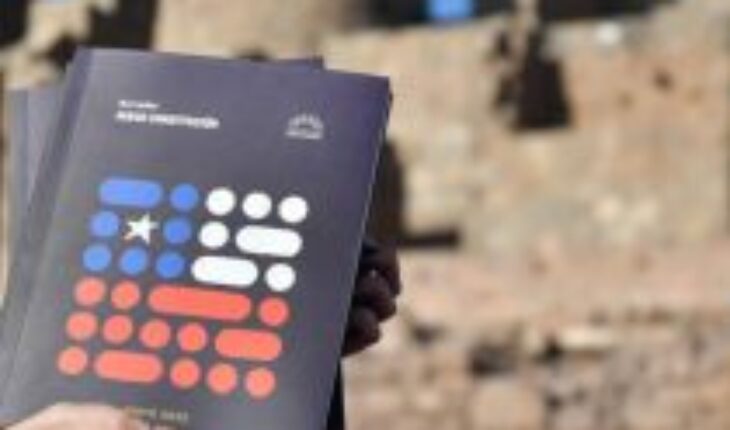The future of Chile is presented to us with giant uncertainties that, at this point, are probably not worth even listing, because from so present they have become daily for us. At the global level, to the questions about how to face technological change, the environmental crisis and the pandemic, there is now that chilling feeling of world war that took over the air. At the local level, the material crisis (inflation, low growth and falling wages) and the social and political crisis (violence in its different aspects, for example) are joined by what I believe is the mother of all questions, that of culture: where are we Chileans going to meet and recognize ourselves to face so much uncertainty together?
Probably the best lesson in recent history on how societies can challenge uncertainties is that of European states, which, after the Second World War and overwhelmed by the insecurity caused by the globalization of commodification processes, decided to solve that dilemma, protecting. It must be the duty of the state and the mission of its government to protect its people. Protect their employers from the uncertainty of markets, and workers and the poor from material crises. To govern is to protect.
That is why I would like to invite the Government of President Boric, almost a hundred days after taking office, to finally take that step and effectively protect Chileans. It’s about time. Of course, European states, like all states in the world, are archaic artifacts. Institutions designed in the nineteenth century, with which we have to face the crises of the twenty-first century. That is why this government must not only protect, it must also transform. The mission is to protect, but there are no longer recipes and the government must be bold in its measures and decisions. The government must transform the state to protect Chileans.
The Government has missed practical and symbolic opportunities to move both ways. For example, to lead the withdrawal of the funds that Chileans have kidnapped by the owners of the AFP. It was, we agree, a bad answer to the problem, but despite that it was an infinitely better answer than the carelessness with which it ended up acting. He lost the opportunity, too, to cease to be that hierarchical and patriarchal state that he criticized so much. The one who solves everything by kicking and lowering lines, and returned, like Piñera’s, to militarize La Araucanía and the province of Arauco. The government forgot to give the territories a chance to be the place where the apparent contradictions of living in freedom and equality (which is not homogeneity) are resolved politically. Things can’t just be done differently: they need to be done differently. Reality is not stubborn. They have the tools.
That is why I call on the Government not to miss the opportunity, still in the making, that the people opened in the street and that is the new Constitution. It has already been said to the point of exhaustion: it will not be perfect, but it is better than that of the 80. But that is not enough. Because the problem is not the quality of the text, the problem is the legitimacy that we Chileans are going to grant to that text, because it will be in that framework that we are going to (re)meet politically and culturally. The Constitution should be a place to assert ourselves as citizens. It must be a milestone from which we can look at the horizon together and, therefore, the Government must be cautious in the way in which it will face the challenge of its approval. It must be played, but it must also banish from the agenda that idea that they installed themselves, about making the plebiscite of September 4 a kind of cat for hare, by proposing it as a referendum on its management. The selfishness of political contingency must not jeopardize a transcendental process such as the one that is coming our way. Therefore, the urgent challenges are: to protect, transform and approve.
Follow us on
The content expressed in this opinion column is the sole responsibility of its author, and does not necessarily reflect the editorial line or position of El Mostrador.





